If you are seriously thinking about learning Polish yourself, then you should definitely pay attention to specialized audio courses. Of course, no textbooks can replace live communication with native speakers, or at least with those who have spoken Polish for a long time and on a professional basis. However, if it is not possible to take courses, then your best assistant in learning Polish is audio lessons.
The site team has selected the most effective Polish language tutorials, with the help of which you will master this language in the shortest possible time. A big advantage for Belarusians is the similarity of our languages, and therefore some words do not even require translation, because sound familiar.
On our website you can download any audio course you like completely free of charge. The audio lessons also come with text materials to reinforce what has been learned. You can engage in self-education with audio lessons of the Polish language in any place convenient for you: don’t waste your time, use every free minute!
“I am starting to speak Polish” Janusz Kucharczyk
The textbook is suitable for those who are just starting to learn Polish. The basics of Polish grammar and vocabulary are presented in a form accessible to beginners. The manual is ideal for both independent work, and for studying material in groups. Literally a few weeks later, you will already be able to express yourself in simple colloquial language and understand your interlocutor. The study guide contains audio materials and a book to reinforce what has been learned.
“I already speak Polish” Janusz Kucharczyk
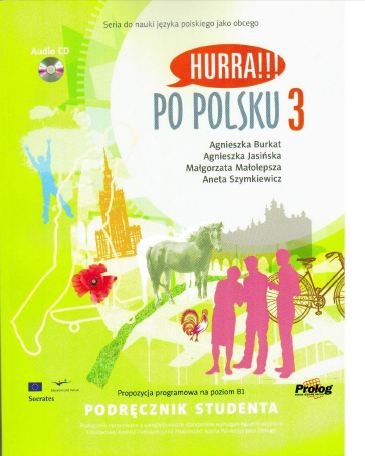
Continuation teaching aid“I’m Starting to Speak Polish” is a book by the same author “I’m Already Speaking Polish”. It will suit who already have a basic level of communication in Polish. The audio course is designed for more in-depth language learning. The textbook presents a complete grammar course. Upon completion of the course, you will be able to read freely Polish texts, and also learn to speak freely and express your thoughts. The manual contains audio and paper materials.
Visa to Poland. Audio course of Polish language

The best series of audio courses on learning foreign languages. The authors offer 18 audio lessons, which are supplemented practical materials. After 60 hours of self-study, you will receive a practical minimum of Polish, which will allow you to confidently communicate with native speakers and clearly express your thoughts in any situation. In the manual you will find more than 400 necessary phrases, words and expressions. A large number of topics on everyday topics. All you have to do is listen and repeat after the announcer!
Download course“Simple Polish” Plotnikova O.V.

The audio course “Polish from Scratch” is incredibly popular among those who are starting to learn Polish. The course is ideal for those who are just about to start learning Polish. You will find audio lessons and text assignments that you must complete to consolidate what you have learned.
Download courseAudio course “Can you? You’ll pass!” Ewa Lipinska
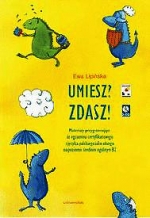
The manual is intended for those who are preparing for the state exam for a certificate confirming knowledge of Polish as a foreign language at an intermediate general level (B2). The textbook consists of five parts: grammar, development of speech perception - reading and listening, written retelling and oral. The degree of mastery of skills can be checked using the key. Each part has its own introduction and content.
In this collection, we have put together a selection of 10 books that we think will help you learn Polish. Here you will find books that contain not only theory, but also exercises in Polish. All Polish language textbooks have been tested by us and believe me, they work. Here is not only a review of books, here you can download textbooks on the Polish language.
So let's begin.
1. HURRA “Po Polsku 2”
A very popular textbook. It is divided into 4 main parts that develop the following skills: speaking, writing, reading and language comprehension. The themes are quite modern and not hackneyed. Here you will get acquainted not only with the Polish language, but also with customs, holidays and national characteristics Poland. The books also contain interesting crossword puzzles, quizzes and competitions, which game form will allow you to better understand the material.
2. HURRA “Po Polsku 3”
 The third re-edition of the popular textbook. The textbook is intended for students. It will expand your knowledge of Polish and teach you how to communicate on various topics: everyday life, sports, society, etc. The textbook also gives you the opportunity to practice vocabulary and grammar on your own.
The third re-edition of the popular textbook. The textbook is intended for students. It will expand your knowledge of Polish and teach you how to communicate on various topics: everyday life, sports, society, etc. The textbook also gives you the opportunity to practice vocabulary and grammar on your own.
3. “Textbook of the Polish language” authors Vasilevskaya D., Karoljak S.
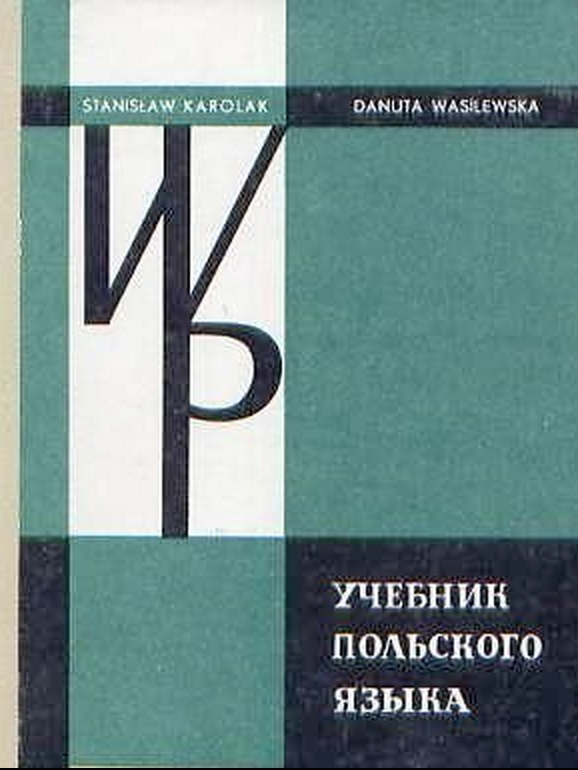 The textbook is perfect for those who are just starting to learn the language or for those who want to strengthen their existing knowledge. The main emphasis of the textbook is on familiarization with phonetics, spelling and grammar of the Polish language. There is also a section with exercises and keys to these exercises so that you can always test yourself and your knowledge.
The textbook is perfect for those who are just starting to learn the language or for those who want to strengthen their existing knowledge. The main emphasis of the textbook is on familiarization with phonetics, spelling and grammar of the Polish language. There is also a section with exercises and keys to these exercises so that you can always test yourself and your knowledge.
4. “Pole Card Exam”
 This material will help you prepare for the exam. Here are all the questions that you might be asked and there are detailed and clear answers to them. All questions are related to the history, culture and geography of Poland. There is also a short guide to questions and answers. This material should certainly help you prepare for the Pole Card exam.
This material will help you prepare for the exam. Here are all the questions that you might be asked and there are detailed and clear answers to them. All questions are related to the history, culture and geography of Poland. There is also a short guide to questions and answers. This material should certainly help you prepare for the Pole Card exam.
5. Polish language. Textbooks for universities. Special literature.
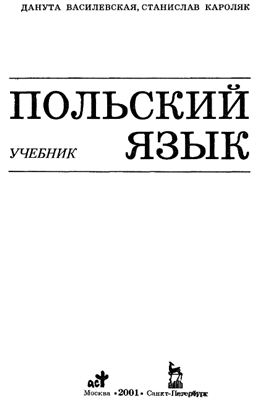 This book is structured in an unusual way. First you read a simple text in Polish, then you look at the dictionary and translate the text. Gradually, you come to the conclusion that the translation becomes less and less, and everything in the dictionary less words translated. And the text becomes more and more complex every time.
This book is structured in an unusual way. First you read a simple text in Polish, then you look at the dictionary and translate the text. Gradually, you come to the conclusion that the translation becomes less and less, and everything in the dictionary less words translated. And the text becomes more and more complex every time.
6. Od słowa do słowa toczy się rozmowa
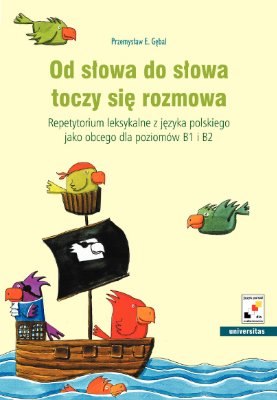 A textbook by Polish authors, designed specifically for foreigners. From word to word, let's go to conversation. The textbook will prepare you to level B1 and B2, its main goal is to develop the necessary communication skills. After the course you will be able to carry on a simple conversation.
A textbook by Polish authors, designed specifically for foreigners. From word to word, let's go to conversation. The textbook will prepare you to level B1 and B2, its main goal is to develop the necessary communication skills. After the course you will be able to carry on a simple conversation.
7. Business Polish
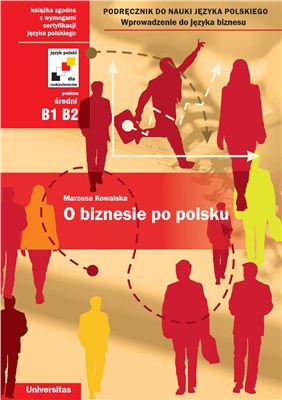 A very interesting textbook that will introduce you to business Polish at level B1 and B2. Suitable for those who are planning to work in Poland, with this textbook you will increase your knowledge and be able to conduct dialogues in a business environment. The textbook is divided into 14 specific topics, which together cover a wide range of business topics.
A very interesting textbook that will introduce you to business Polish at level B1 and B2. Suitable for those who are planning to work in Poland, with this textbook you will increase your knowledge and be able to conduct dialogues in a business environment. The textbook is divided into 14 specific topics, which together cover a wide range of business topics.
8. Krok po Kroku Polski A1+A2/ Step by step Polish A1+A2
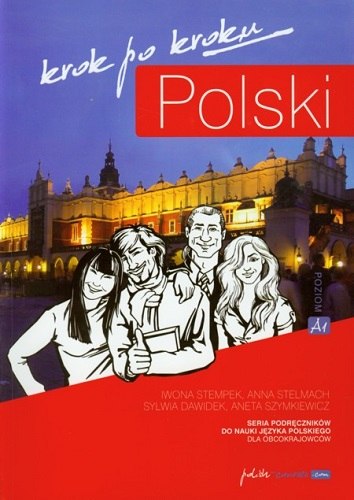 A textbook from a large series, written by Poles especially for foreigners. It is important to note that the textbook meets all standards and is certified as material recommended for learning Polish as a foreign language.
A textbook from a large series, written by Poles especially for foreigners. It is important to note that the textbook meets all standards and is certified as material recommended for learning Polish as a foreign language.
9. Mochalova T. Polsky “from scratch”
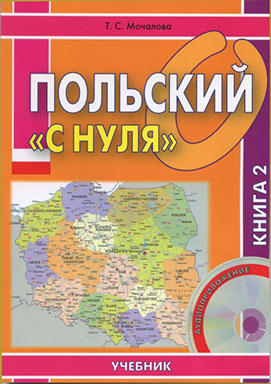 The title of the book speaks for itself. It will help you master the skills of writing, reading and maintaining dialogue in the shortest possible time. If you need to quickly learn basic knowledge, then this book is for you.
The title of the book speaks for itself. It will help you master the skills of writing, reading and maintaining dialogue in the shortest possible time. If you need to quickly learn basic knowledge, then this book is for you.
And to be more precise, how force learn Polish on your own and, if possible, quickly at home.
Everyone and everything talks about motivation; on every corner of the World Wide Web you can find a coach, trainer, psychologist or some other specialist,
which will tell us all about motivation. I don’t know about you, but this doesn’t work very well for me. Perhaps I'm too lazy or skeptical, but I usually don't have enough time for a long time, or I don't start following the advice at all. I'm just reading in vain.
I am not a coach, not a psychologist, and most likely not even a specialist. I won't tell you how to force yourself to do something. at all. Get up early, do exercises, read a lot, don’t crack seeds with your teeth - that’s not what this article is about! No, I understand only one type of motivation - how to force yourself to learn Polish on your own.
How I had no motivation at all
I think I understand this only because of my own experience of forcing myself to learn Polish. Because I didn’t have the motivation, like you, dear readers, to go to Poland to study/work. I had no motivation at all. I went to my first lesson “with the company”, as they say, everyone went - and I went. Here, perhaps, I was a little motivated by the fact that the lesson was free.
Then I signed up for the course. How? I don't know myself. I decided to go best friend(in his words - just like that) - and I went tail. Also - just like that. It seemed to me that Polish was a very easy and funny language (it still seems that way sometimes). And I walked for three long months (or two?). And the friend stopped, who would doubt it. And all the castles in the air began to collapse. I realized that although I was interested in the language, I understood little. The Pole teacher rarely explained anything in a way that everyone could understand. Usually he just talked, we tried to do some exercises - and I often had a lot of questions at home about how and where I did it. Because there were no explanations for exceptions, because there were few examples, because... In general, I gave up.
Several months of complete absence of Polish practically erased everything from my mind.
That’s why “random” meetings with Polish people began. Either I found some old girly magazine in Polish at home (!), then someone posted some picture in Polish on VK, gave me songs to listen to, claiming that they were in Polish (but they were in Serbian). In general, life was slowly turning in the right direction.
How did motivation come about?
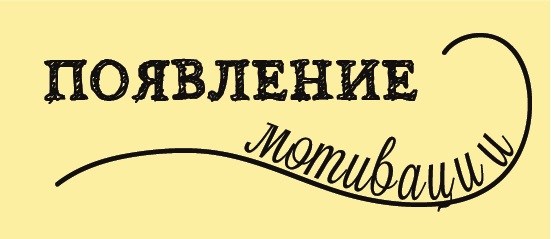
A friend of a friend of a friend asked me to study Polish with a girl. But before that, my friend said: “Place an ad on Desk, become a tutor.” To which I answered: “How??? I don’t know Polish at all!”
Polish was needed not for admission or anything like that, but so that when the family moved to Poland, the girl would not have stress, so that she would already know letters and some words. And so, having named a ridiculous price for the lesson (because I basically wanted to teach for free), I began to teach an eight-year-old girl, pretending with all my might that I knew the language. Deception, you say? The most real one. But it became my motivation.
You see, I hope that I am not the type of person who can pretend for a long time and take money for it. Therefore, from the first lesson I began to prepare like hell. I brought with me a bunch of materials found on the Internet, a laptop with downloads (the girl’s favorite cartoon was “Koszmarny Karolek”), I crammed pronunciation, rules and words at home. I listened to cartoons a hundred times to know exactly what they were talking about, how to explain and translate them to a child. I didn’t study pedagogy, but my parents are teachers, and I knew some things just like that. The girl studied, in addition to Polish, three more languages, went to tennis and to the pool, so we spent a lot of time playing with her, playing in Polish. We staged theatrical productions with toys, where everyone spoke Polish, we drew fairy tales, where the characters learned Polish alphabet, we watched cartoons and rewound to particularly interesting words and moments. We studied together.
Then another girl appeared and my self-confidence. The girl was much older, and we were already studying from a textbook that I kept after the course. And I memorized everything that was there, I explained the rules to myself, looked for them in other sources, bought myself other book sources - and was always ready for the lesson. Yes, I was sometimes caught off guard by questions like: “What is this called in Polish?”, but I knew the real teacher’s excuse: “Great question! Let this be your homework? Both their studies and mine progressed at a frantic pace.
Poor girls?
What have I just told you? That at the beginning of my tutoring history I had no right to do this at all? Yes. I didn't. But I did, and I did, sometimes it seems to me, sometimes even better than now. Now I’m ready for almost any questions, I can chat in Polish for days, I’ll recite many grammatical rules from memory - but I’m unlikely to draw fairy tales in Polish or play theater with anyone. Although I still have a craving for this (sorry, my dear students, when I get too carried away).
And now - how to quickly learn Polish on your own at home
You've already read how =)
But seriously, I’ll highlight everything point by point and add something else:
- Find someone to teach. This could be your own child, the child of your girlfriend or boyfriend, your husband/wife, brother/sister, parents - anyone with whom you are willing to spend an hour or two at least twice a week. By the way, I already mentioned children before.
- You can formulate the task for yourself differently - do not teach, but talk about what you yourself have learned, tell it so that it is like the joke: “Well, students are stupid! I explained and explained to them, I already understood, but they still didn’t understand.”
- If this is a child, arrange everything as a game, watch cartoons in Polish together, sing songs, read poems, make the Polish alphabet.
- Have a serious conversation with an adult, explain how important it is for you to learn Polish quickly, on your own, but with his help.
- If you already have some knowledge of Polish and feel like I once did, place ads, set a low price, indicate that you are teaching from scratch (or maybe mainly with children) - and start studying hard.
Responsibility motivates me very much. I think this is true for many people. Still did coursework/diplomas in last night before delivery? The deadline motivates, and responsibility. So it is here. I understand that if someone hires you for money, it’s terrible, what a responsibility, but also great, what motivation.
P.S. If after reading this article you want to unsubscribe from the newsletter/subscribe to the news because I have greatly disappointed you, that is your right. If you have angry comments about how I could deceive people like that, then re-read the article again, and then write a comment. And if you yourself have a similar story, I would be very glad to read it!
In general, the article is about how to deceive yourself and still force yourself to learn Polish on your own - but still with someone’s help. I hope that these many letters of mine will help you either decide on something, or sit down with your son/daughter new game called "Polish".
It’s been three months now that I’ve been studying this language almost every day. No, I don’t take courses, and I don’t live in Poland (upd: I already live here too), but suddenly it turned out that I need to improve my Polish language, do it quickly and on my own.
Now I’m not learning Polish from scratch, I have basic knowledge, but it was acquired more than 10 years ago, and I haven’t used the language at all for more than 6 years. In general, you need to remember and build up a lot.
In general, I’m sharing my steps to learn Polish with you.
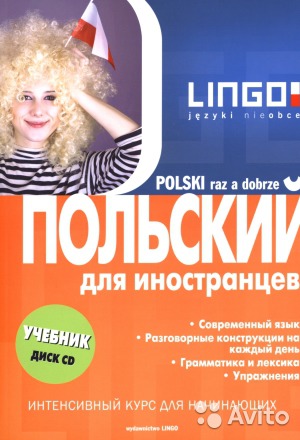 To begin with, I needed some good basic textbook, preferably new and beautiful, so that it would be pleasant to study from it). Having gone to our very own Central Bookstore, I discovered that there are a lot of Polish language textbooks there, they are not particularly interesting, and, frankly, cost a lot of money.
To begin with, I needed some good basic textbook, preferably new and beautiful, so that it would be pleasant to study from it). Having gone to our very own Central Bookstore, I discovered that there are a lot of Polish language textbooks there, they are not particularly interesting, and, frankly, cost a lot of money.
This disappointment made me think a little, and I remembered that in Minsk there is a Library at the Polish Institute, where, in theory, I can get something I need for myself. Imagine my joy when the smiling librarian immediately gave me 4 different beautiful and sensible textbooks! And all this - for passport data (how else can you sign up for the library?) and zero rubles! Maybe you have something similar in your city? Not necessarily a special Polish library; perhaps the required textbook can be found in some large city book depository. Or, as a last resort, you can print a book from the Internet. The main thing is that it is modern and you like it, otherwise it will be very difficult to force yourself to study. The photo shows one of those textbooks that I liked.
So, task one - the basic textbook - was solved.
Quest 2. Regular classes
When I, inspired by my success in the library, sat down to read a book the next day, I simply grabbed my head, because I had difficulty even reading! But since the textbook was pleasant to the touch, and in each lesson a part was printed interesting story from the lives of students, the lessons went on more or less.
To avoid the cruel setback when you study like an ox for a week, and then for two you can’t pick up a book at all, I didn’t torture myself and took one lesson in the morning and, if I had the strength, another one in the evening. In total, two lessons took me an hour. Through trial and error, I discovered that if you are half asleep, before your brain starts doing its hurdy-gurdy thing like “oh, let’s do it later” or “oh, I don’t feel like it,” “well, in 10 minutes,” grab the textbook in your hands and start reading – the first lesson is completed automatically. Well, for completing the evening, bonuses awaited me in the form of an additional tasty treat the next morning.
In the process of this morning-evening rhythm, an excellent effect was discovered - the brain seemed to additionally work at night in the Polish language mode, and in the morning it turns it on again - personally, my learning accelerated.
It was very nice to celebrate my progress - to see that I had already completed two lessons, three, half of the textbook...

Quest 3. Add a twist - simple fiction is better than a children's book
Just reading a textbook is boring! But too many different activities is also too much. Therefore, I went through three quarters of the textbook without taking on anything else. But when it became clear that I only had a week left to study the book, I put the textbook away in the evenings and instead began reading aloud a beautiful children’s book about Polish legends. Large font, beautiful printing, cute drawings - this helped me not to die of horror, listening to my stumbling voice.
The photo is not the book I read, but I think the essence is clear.
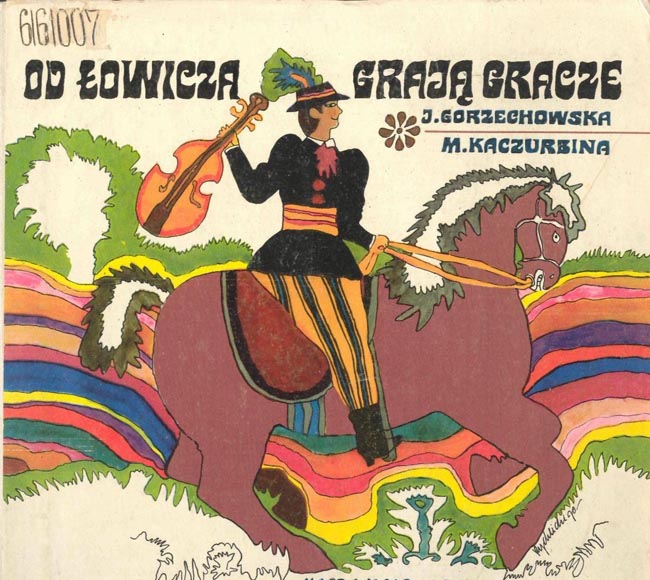
Quest 4. Introducing good habits
Once the tutorial was completed, and the basic grammar and basic vocabulary had settled into my head a little (I gave myself one day off in honor of finishing the tutorial), I began to more actively use what I had gradually introduced in the last week.
The habit of writing down all unfamiliar words
I am writing in an amazing application for Android AnkiDroid - it is essentially a shell for any vocabulary cards in any language. You write everything you need to learn into it, and it shows you everything you need to know at a given interval. A very convenient thing. To be honest, I didn’t try it right away, but now you can’t drag me away by the ears. IMHO, this is best way studying foreign words. Working with the program takes 3-5 minutes a day, during which time you learn 15-20 new words and repeat some old ones. There is nothing better than taking out your smartphone on the subway and poking at words!
Habit of watching several Polish YouTube channels
I like 20 m because there are new Polish people there every time, both young and old, with different tempos and timbres of speech - in general, it’s not always easy, but ideal for learning. I'm still watching Polish TED. You can also watch films in Polish, but I don’t have a very close relationship with cinema, so for myself I chose videos on YouTube.
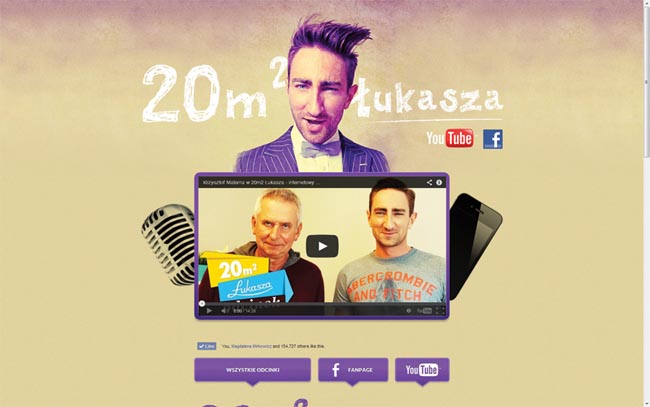
The habit of speaking and sometimes thinking in Polish
On particularly good days I find myself thinking that I hear Polish in my head! I hope there will be more days like this over time. Now there are no Poles in my circle, and on well-known sites like sharedtalks no one responded to my advertisement about “talking”. Solution? I made myself a list of 20 standard topics (my family, my city, my hobby, etc.) and periodically tell myself something about these topics. Moreover, I try to do it out loud, it is much more effective. I also try to speak in Polish about everyday topics with those who are aware of my extreme Polish language course. It really pumps up the tongue.
Dictionary Habit
If you don’t know a word that will be useful to you in the future, I immediately look in the dictionary. And she also made it as simple as possible - she downloaded an offline dictionary to her phone. At the beginning, I tried to use Google Translate, but, as it turned out, Google doesn’t translate quite a lot of words even without context correctly, so it’s better to use a specialized dictionary.
Habit of reading in Polish
After several months of studying, I picked up an unadapted, but light, funny book in Polish from the same library. The first 20 pages were still a bit difficult for me, but then things got easier and just from the thought that I was reading a real book for Poles, the letters flowed more cheerfully. Oh yes, I still hung up some grammar in the kitchen and you-know-where - I still want to speak competently, so let complex cases be remembered in the background.
Of course, if you are facing a serious exam, then you are unlikely to get by with self-preparation alone, but if you just need to be able to speak and understand at a good level, my option is quite viable.
The main thing is to find interesting materials and make access to them as easy and simple as possible. Then your studies will go well. And of course you need to do this regularly, every day. I know from myself that if you miss even one day, it’s much more difficult to get back into the rhythm.
Patience and inspiration to you!
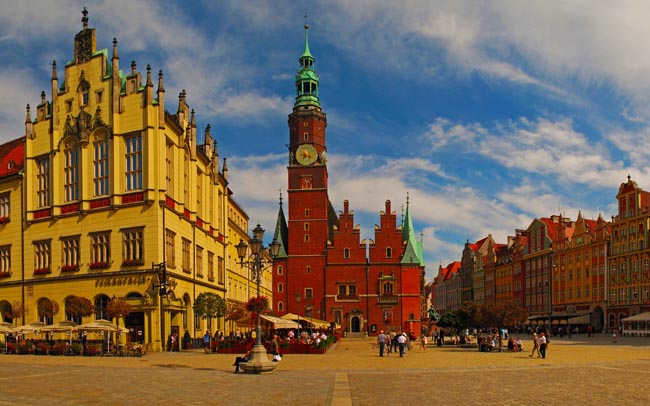
If you found this article helpful, simply book your hotel or purchase your flight ticket using the forms below. This will not change anything for you (the prices are the same), and I will receive an incentive to write new articles.
Thanks for reading!
Materials for learning Polish. Part 2 is a continuation of my selection of textbooks and self-instructions for the Polish language. I have already posted the most popular of them in my collection. The second part consists of less popular resources in which you can find a lot of interesting things for yourself - from explanations to exercises.
Blanka Konopka podręcznik języka polskiego dla środowisk rosyjskojęzycznych – part 1
A Polish language textbook written specifically for Russian-speaking readers. Ideal for those starting to learn Polish from scratch. There are all the necessary basics like vocabulary, as well as basic grammatical and lexical rules.
Audio self-teacher of the Polish language, aimed at an English-speaking audience. Each lesson consists of explanations of the rules and replenishment of vocabulary. Ideal for studying in the car and public transport.
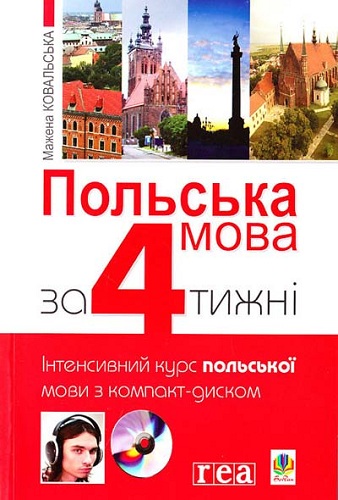
Mazhena Kowalska - Polish language for 4 years - parts 1, 2.
A course for those who are starting to learn Polish. The textbook can also be used by those who want to review Polish grammar and recall vocabulary. Advantages of the course: modern spoken language, typical situations of daily life, interesting stories, accessible grammar course. Explanations in the textbook are given in Ukrainian.
I’ll add on my own behalf - I learned a lot from this textbook interesting moments, which I have not seen in other tutorials. For example, the difference between the words znać and wiedzieć.
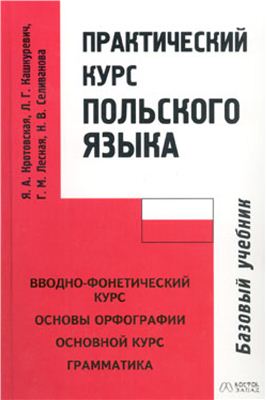
Ya.A. Krotovskaya, L.G. Kashkurevich, G.M. Lesnaya, N.V. Selivanova. Practical course of the Polish language.
The textbook is intended for beginners in learning the Polish language and corresponds to primary and secondary levels of learning. The textbook consists of an introductory phonetic course, a summary of the basics of Polish spelling, a main course including 32 lessons, and a “Grammar” section. The publication takes into account the peculiarities of teaching a language related to Russian. The textbook will allow you to develop strong articulation and intonation skills, master the standard course of grammar and the lexical minimum, and also develop verbal communication skills. Basic and additional texts for lessons provide knowledge about the country of the language being studied, and also introduce students to the most significant phenomena of classical and modern Polish literature.
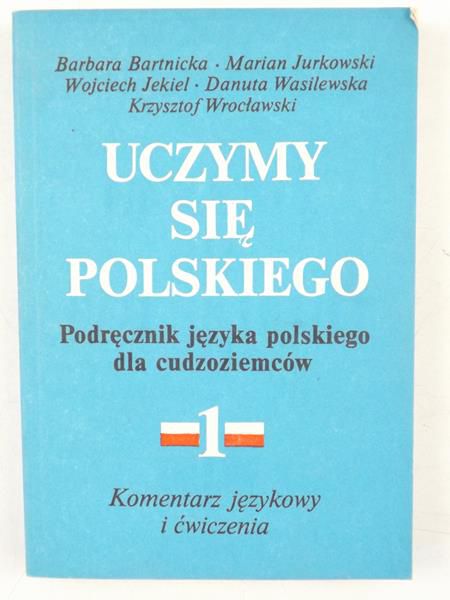
Barbara Bartnicka, Marian Jurkowski, Wojciech Jekiel, Danuta Wasilewska, Krzysztof Wrocławski. Uczymy się polskiego.
The textbook “Learning Polish” represents the first part of the Polish language course for foreigners and is intended for beginners, primarily under the guidance of a teacher, because The textbook itself is in Polish.
The textbook consists of 50 lessons, each of which includes text, new grammar material and a dictionary of new words. In addition, the textbook contains poems by Polish poets and song lyrics with notes.
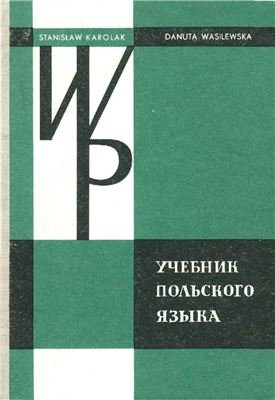
S. Karolyak, D. Vasilevskaya. Textbook of the Polish language.
This book comprehensively examines the rules of the Polish language, focusing on correct speech and phonetics. It is suitable for those who decide to learn the Polish language on their own and will use it as a self-teacher for the Polish language. At the end of the textbook there are examples of all types of conjugations and declensions, as well as keys to exercises for self-test.
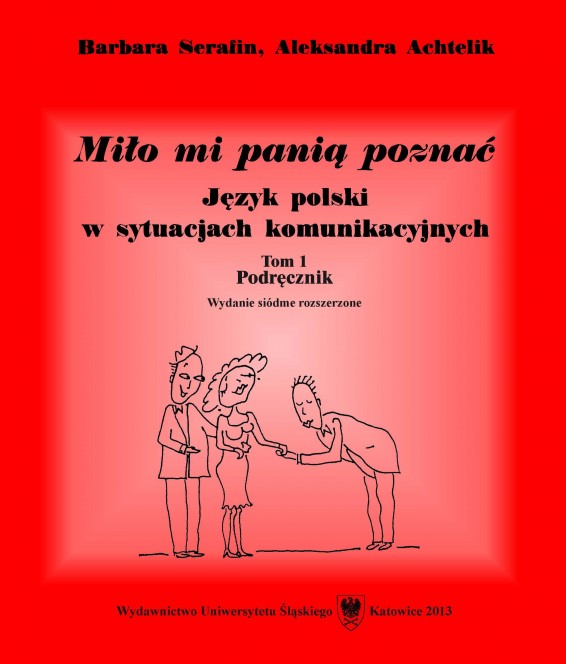
Aleksandra Achtelik, Barbara Serafin. Milo mi panią poznać
The textbook is addressed to foreigners who want to learn the basics of the Polish language. The authors use a communicative method, describing each lecture in a specific everyday situation. Students learn basic words and phrases that are used, for example, during a visit to the doctor, shopping at a store, kiosk, etc.
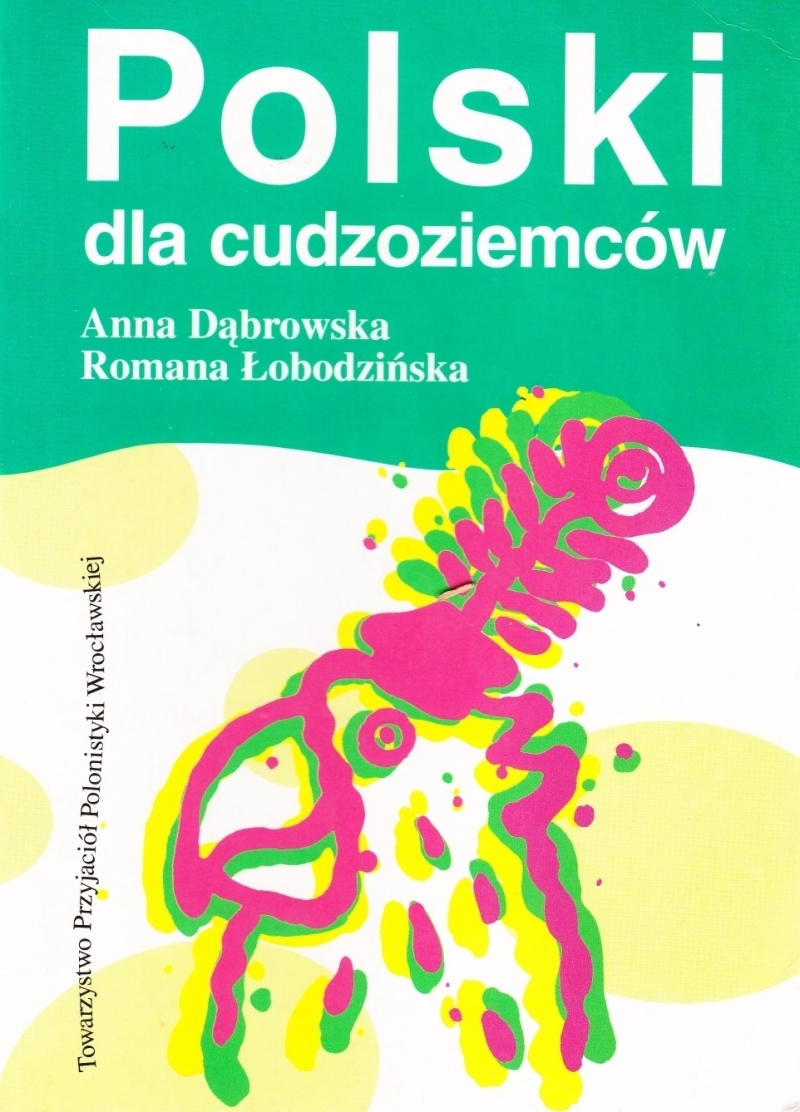
Anna Dąbrowska, Romana Łobodzińska. Polski dla cudzoziemców.
The book is intended for beginning students. It has a classic structure: each lecture begins with a text, followed by questions to the text. The next part of the lesson is short dialogues thematically related to the text. The next part is grammar tables and exercises. Additionally, the textbook contains the key to the exercises. The book is designed for A1 level students.
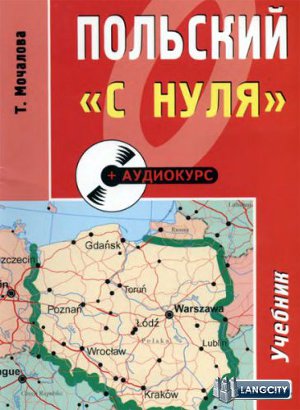
T. Mochalova. Polish from scratch.
The Polish textbook from scratch is intended for beginners and can be used both at the initial stage of learning the language and in order to master basic reading, writing and conversation skills in the shortest possible time. For the fastest possible “speech” in each of the 12 lessons, along with traditional phonetic exercises a large number of diverse tasks are introduced, including in the form of mini-texts and dialogues, focused on the formation of vocabulary, mastering basic grammatical forms and speech patterns.
Independent studies are facilitated due to numerous comparisons with the Russian language, linguistic terminology kept to a minimum, and sound accompaniment.
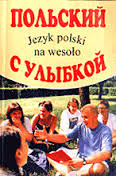
Shkapenko T.M. Polish with a smile. Język polski na wesolo
The purpose of the manual is to teach Russian-speaking students speech activity in Polish. The manual is distinguished not only by its modern methodological base, combining communicative and problem-based approaches to learning foreign languages, but also modern attractive content. It is full of quizzes - puzzles, author's humorous stories, fun new versions of popular fairy tales, combines elements of literary and colloquial language. All this makes the learning process not only effective, but also interesting and enjoyable.



